Youth Villages program LifeSet Scholars helps students with tough pasts earn degrees
In his youth, Shahil Patel was bullied mercilessly for having cancer. Other students referred to him as a “walking disease” and “waste of life.” They’d say, “Go kill yourself, you cancer boy,” and push him to the floor, he said. And though Patel had always been told to rely on adults for help, his teachers showed him no sympathy.
He felt as if God had placed him alone on one side of a battlefield, then put the rest of the world’s residents on the opposing side, and armed them with every weapon imaginable.
“I see the rest of the world on their end coming towards me, and I’m like, ‘What do I do?’” Patel said. “It felt like everyone was coming at me, pointing fingers and saying, ‘You, you, you, you.’”
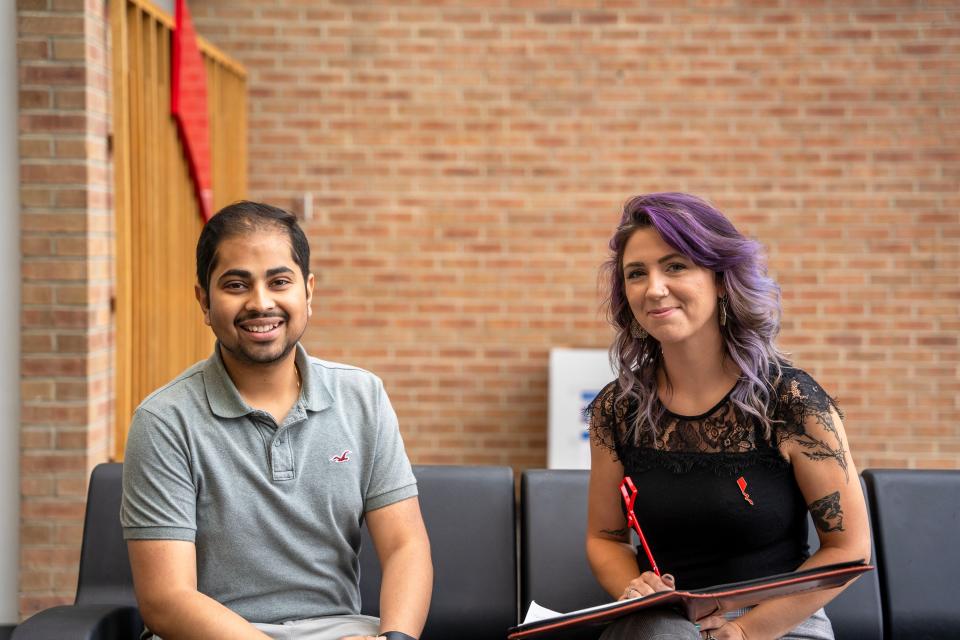
But when Patel met with The Commercial Appeal recently, he didn’t feel alone or dispirited. Instead, he was jovial and energetic and joined by Jenny Young Ha, Dylan Michael Evans, and Brandon Washington ― young adults who, like him, have pasts filled with traumatic experiences.
LifeSet Scholars
The four had just come from orientation sessions for the LifeSet Scholars program run by Youth Villages, the Memphis-based nonprofit that provides aid to children and young people facing an array of mental, emotional, and behavioral health challenges. The goal of LifeSet Scholars is to help people aging out of foster care ― and others who lack a solid support system ― earn postsecondary degrees and transition to adulthood.
And from July 19 to July 21, an orientation was held in Memphis for 21 newer members of the program, like Patel, Ha, Evans, and Washington.
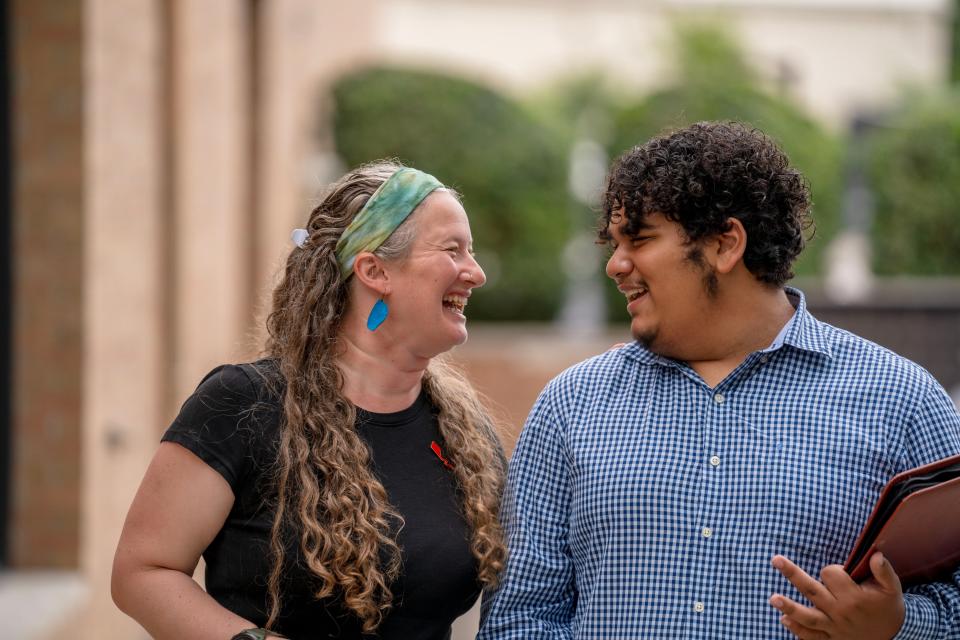
Because LifeSet Scholars has a presence in eight states, the participants came from around the country and took part in a variety of sessions. There were presentations and discussions on time management, information technology, financial literacy, and resume building. There was an overview of advocacy networks that focus on foster youth, a social night at the entertainment venue Main Event, and a service project at Hope House Memphis.
Genuine care
But while the students appreciated the array of programming offered at the orientation, there was another element to it that was particularly meaningful to them ― the chance to grow close to one another, even for just a few days.
As Patel, Ha, Evans, and Washington all noted, relating to others can be difficult; many people simply don’t understand the pain caused by their tumultuous upbringings. Instead of having the chance to just be kids, Ha explained, they had to “learn how to survive.”
But with each other, the four felt an almost immediate kinship. The night before speaking to The CA, Evans and Washington stayed up until 3 a.m. talking.
“Everyone here can relate to each other on a different level than even our closest friends,” Washington said. “Because even though our stories aren’t the same, there’s still similarities there that other folks don’t get.”
Added Ha: “Every single person I met… genuinely cares, and actually has something they can share that I feel like I can relate to. Whereas, I go to school, and they're like, ‘Yeah, my parents bought me a trip to Cabo.’”
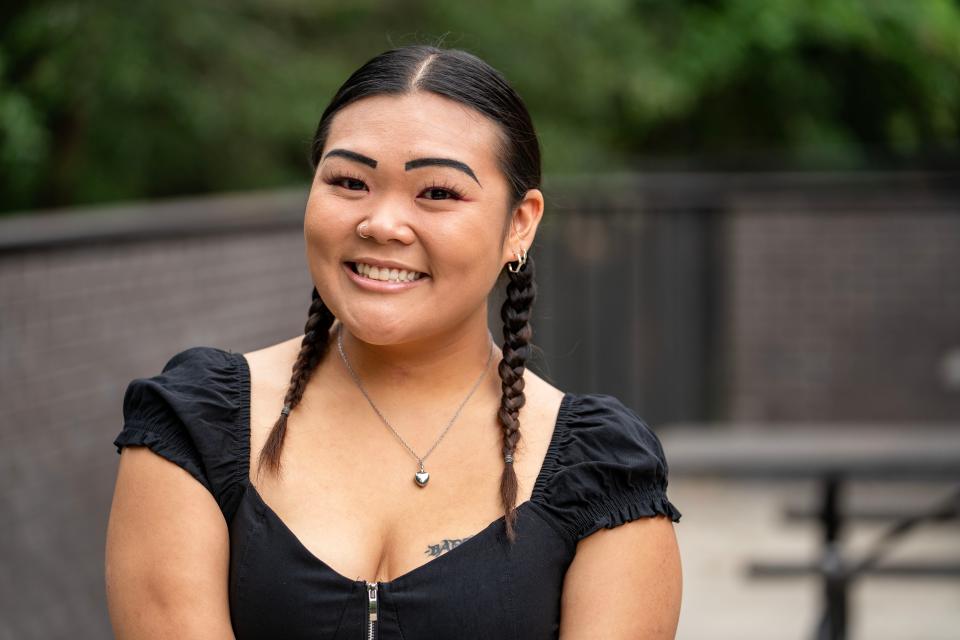
The friendships formed between LifeSet Scholars participants aren't uncommon. In fact, they're one of the main reasons Youth Villages makes the effort to bring people in from across the country for the orientation.
“That's the purpose of what we're doing here,” said Jennifer Rhodes, the national LifeSet Scholars coordinator and an alum of the program. “We’re making sure that they know there are others out there trying to go to school and achieve these goals that, a lot of times, they've been told by other people they wouldn't ever be able to do.”
'Most of their life is just surviving'
For those who have been through the foster care system or had unstable upbringings, earning a degree can be a monumental task. According to Youth Villages, just 50% of youth who experienced foster care will earn a high school diploma, while only 20% will enroll in a higher education institution, and only 3% will earn a bachelor’s degree.
“Getting a college degree for any kid can be a challenge, even under the best of circumstances ― but it’s especially challenging for a young person that’s bouncing around so often, growing up in the foster care system without the ongoing support from a typical, loving family home,” said Youth Villages CEO Pat Lawler. “If you don’t have a stable life, it’s hard to think about a stable future… Most of their life is just surviving.”
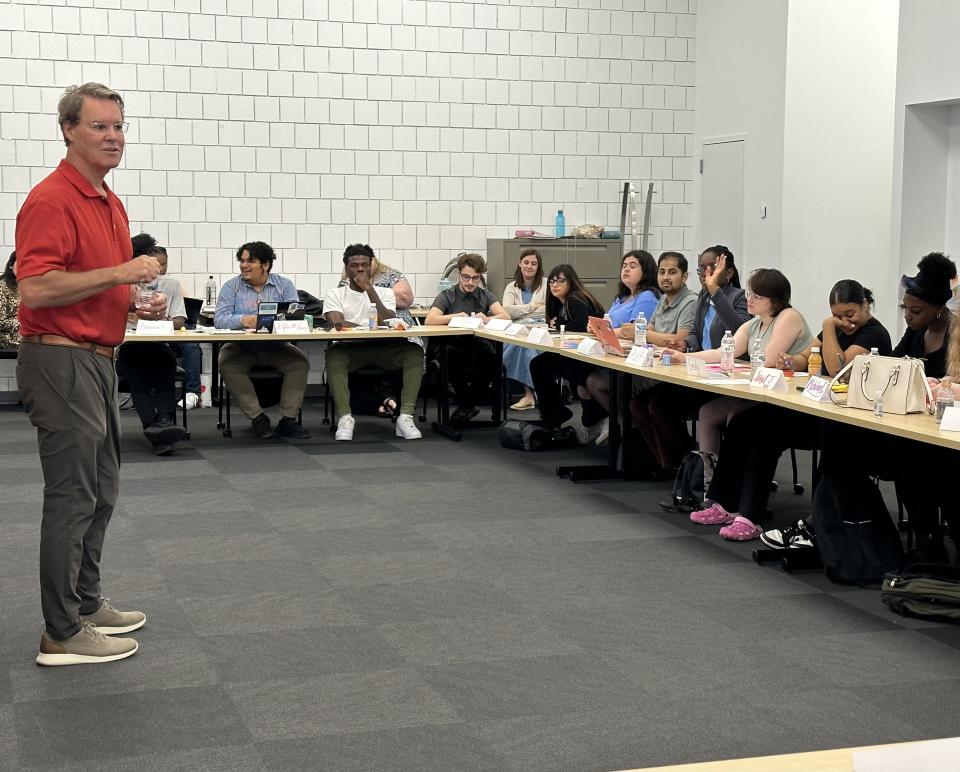
That’s where LifeSet Scholars, usually a four-year program, comes in. A subset of another Youth Villages offering, LifeSet ― which helps foster youth transition to adulthood but doesn’t focus on education ― it was founded in 2010. And since its inception, LifeSet Scholars has aided around 400 students, with roughly half of them earning postsecondary degrees.
Currently, there are about 135 students in the program, and they receive a significant amount of support.
They’re given laptops and $350-per-month stipends. They receive mentors that can act as trusted friends and guides. And they’re assigned clinically trained LifeSet specialists, who typically meet with them once a week. These specialists help them through the admissions process and then support them as they work towards their degrees, while also providing mental health services.
“My [Youth Villages] specialist, she was just amazing ― someone that I could go to every morning, sit down with, and know that this person will be there listening to me,” Patel said. “They’ll be there to help me and guide me… and that really helped change my attitude and mindset.”
Looking ahead
This type of support is helping Patel, Ha, Evans, and Washington work towards their long-term plans, which are ambitious. In spite of their pasts, the four look to the future with hope and excitement. During an interview with The CA, they didn’t just share their struggles. They joked, smiled, and talked about their goals.
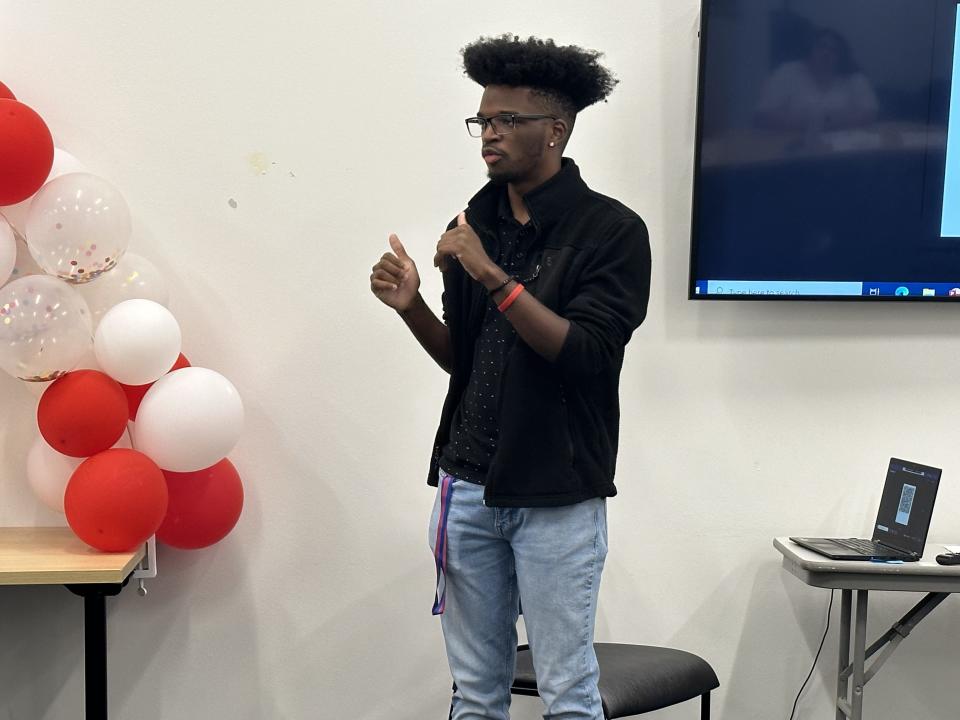
Patel is seeking his master’s degree in corporate finance at Merrimack College in Massachusetts, with the hope of obtaining a job with a successful marketing firm and one day creating a foundation in the name of his little cousin Veer ― who he lost to cancer three years ago. Evans is working towards his bachelor’s degree in psychology at the University of North Carolina at Asheville, with plans to earn a master’s degree in social work and become a marriage and family therapist.
Ha is studying pre-nursing at Portland State University, and wants to ultimately become a travel hospice nurse. Washington is double majoring in Russian and international studies at Rhodes College and has set his sights on joining the political realm. Already, he’s running for a District 9 seat on the Memphis City Council.
And though the four are set to pursue their dreams apart, they’re not likely to forget each other soon.
After Patel said he had once felt like God had placed him alone on one side of a battlefield, and the rest of the world on the other, he was asked if the group at the orientation made him feel like more people had joined his side.
His response was simple:
“I felt like I found a family.”
This article originally appeared on Memphis Commercial Appeal: Youth Villages helps foster youth earn post secondary degrees

